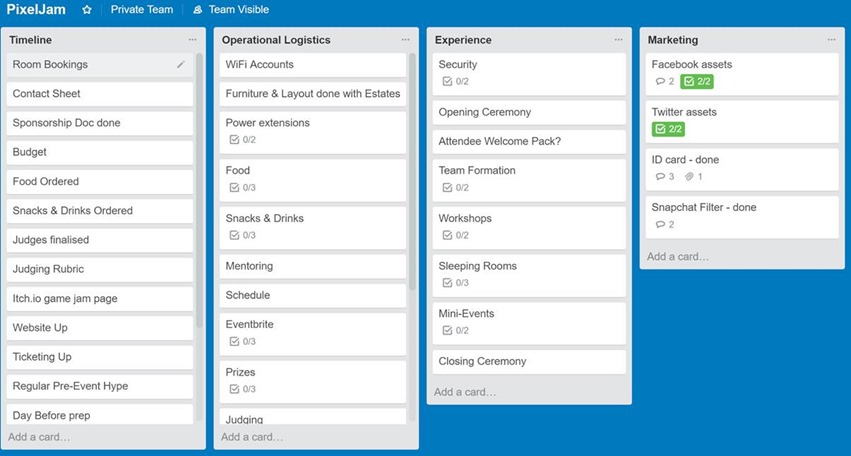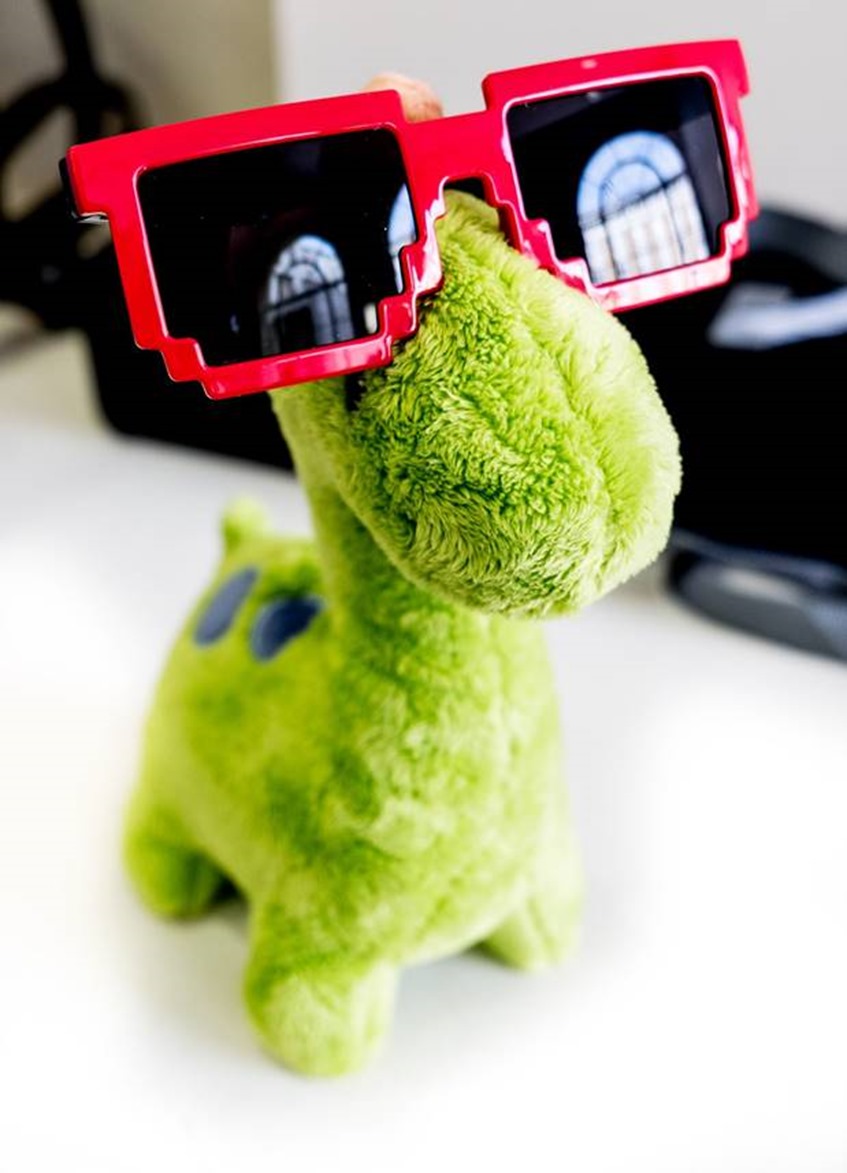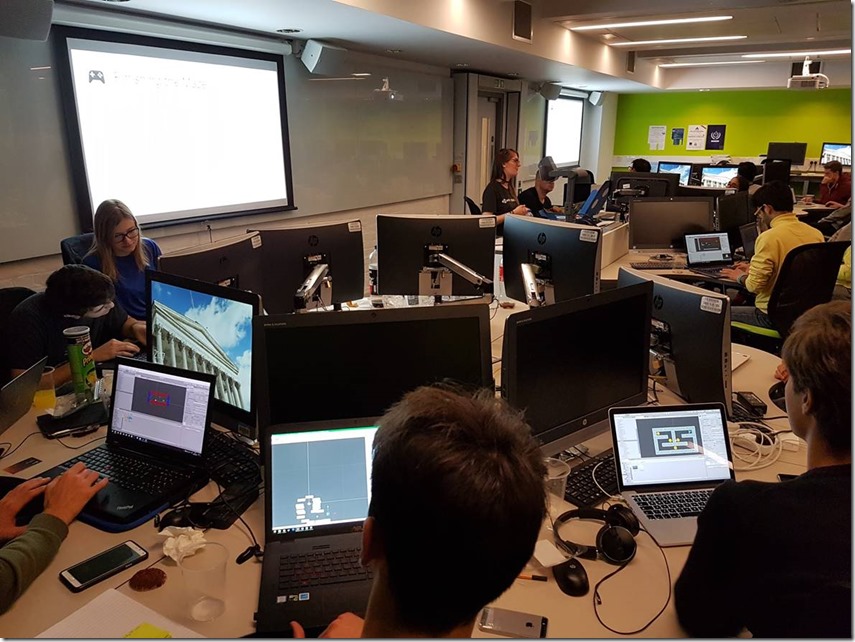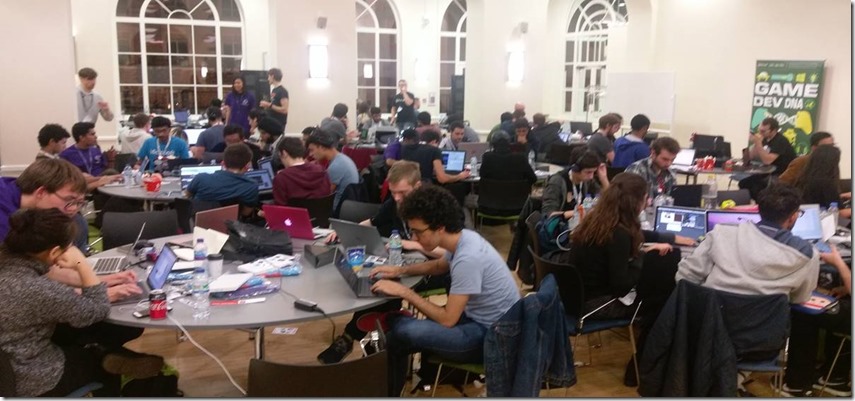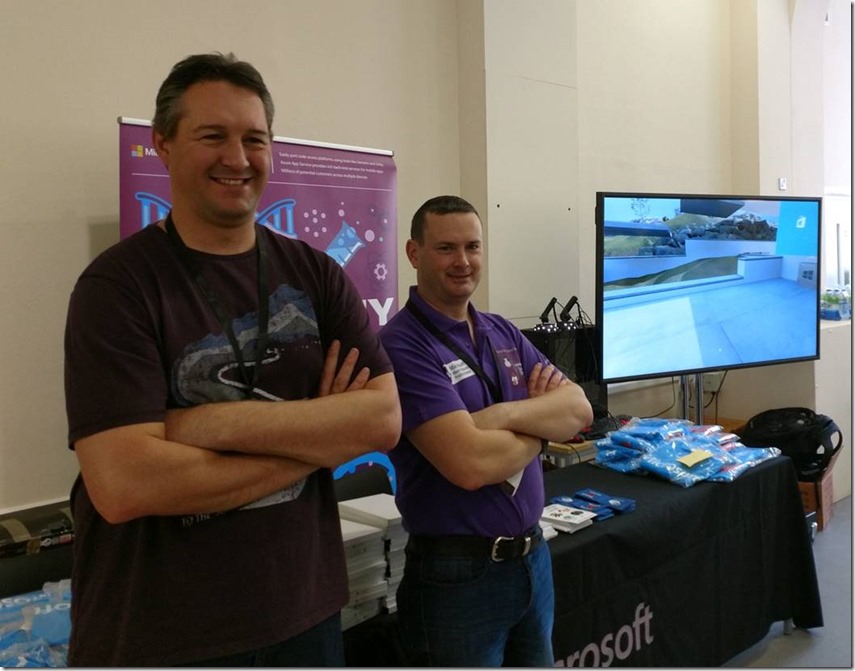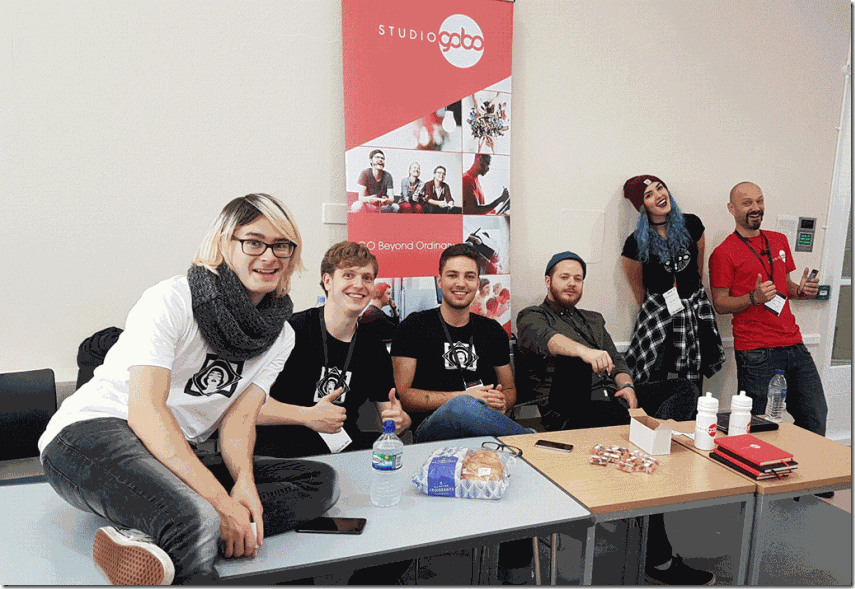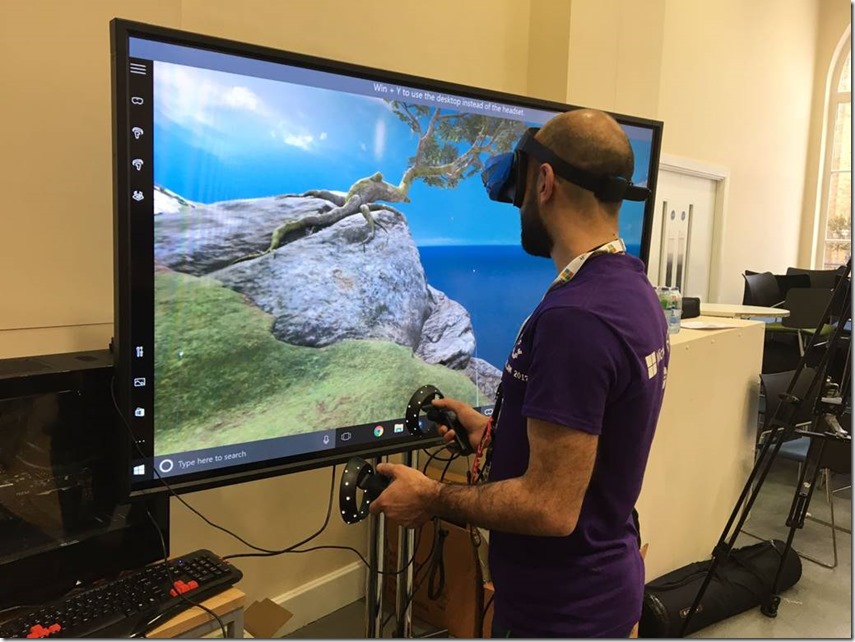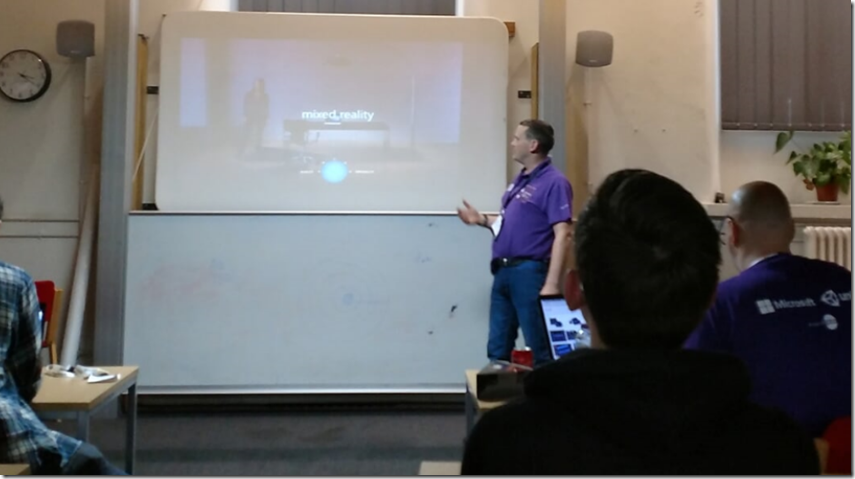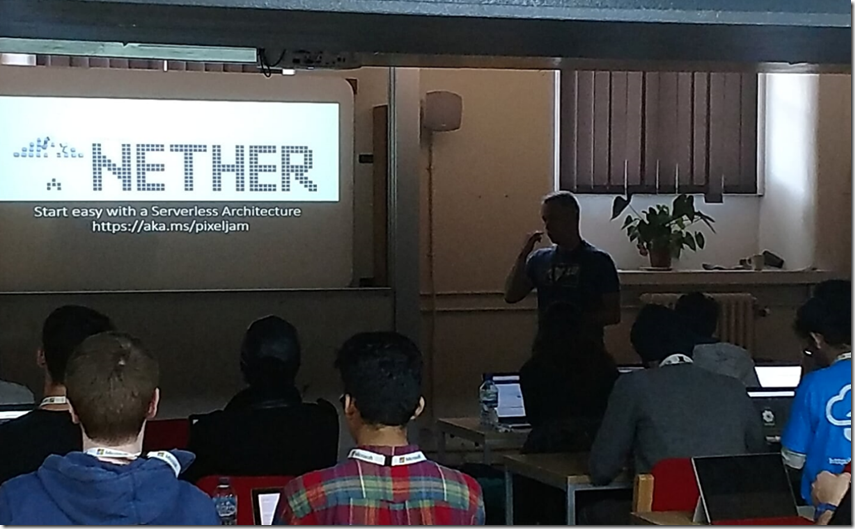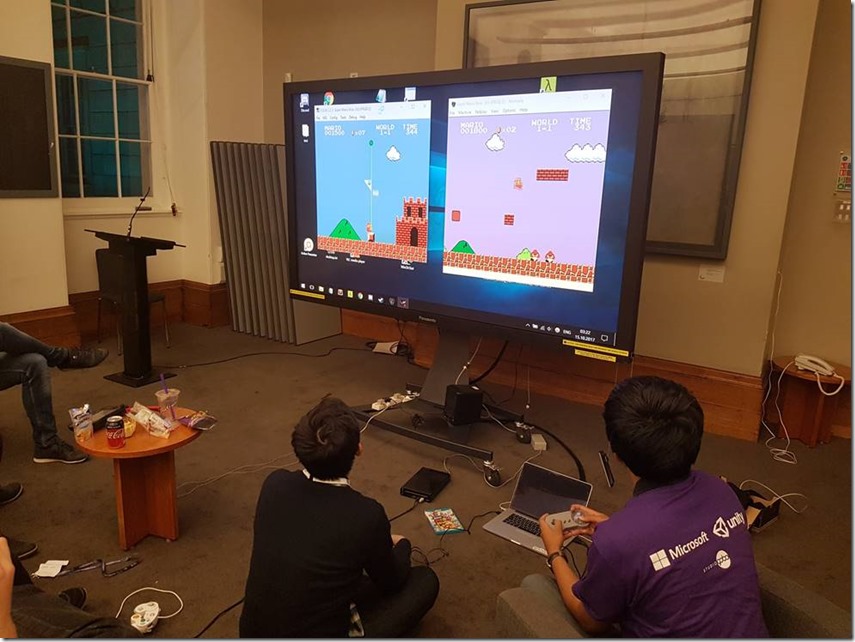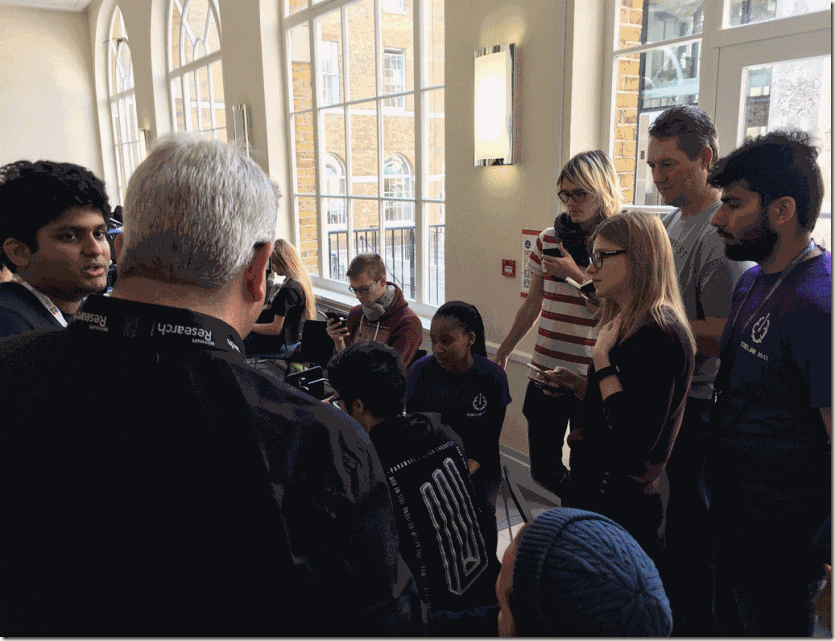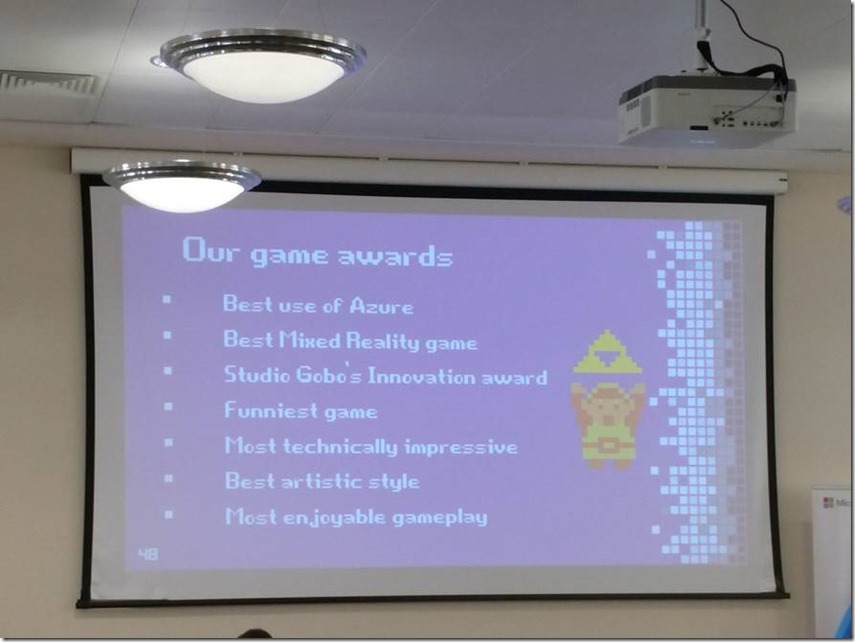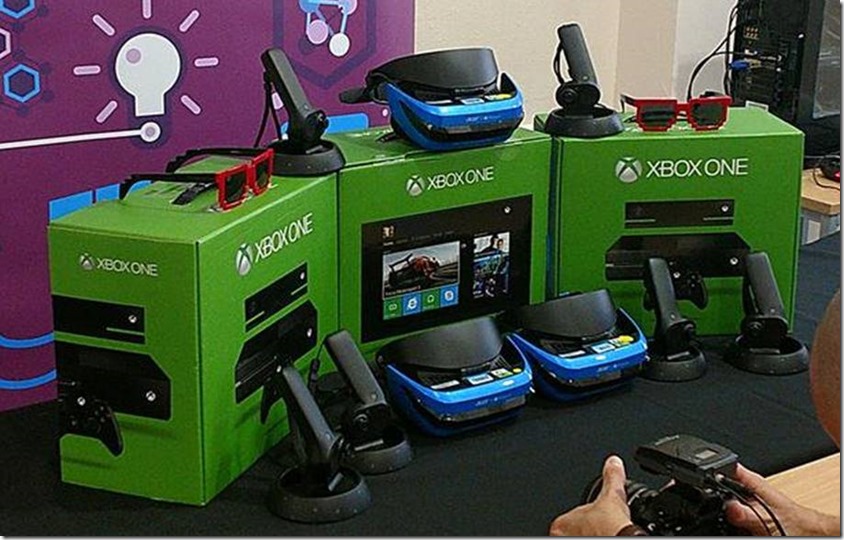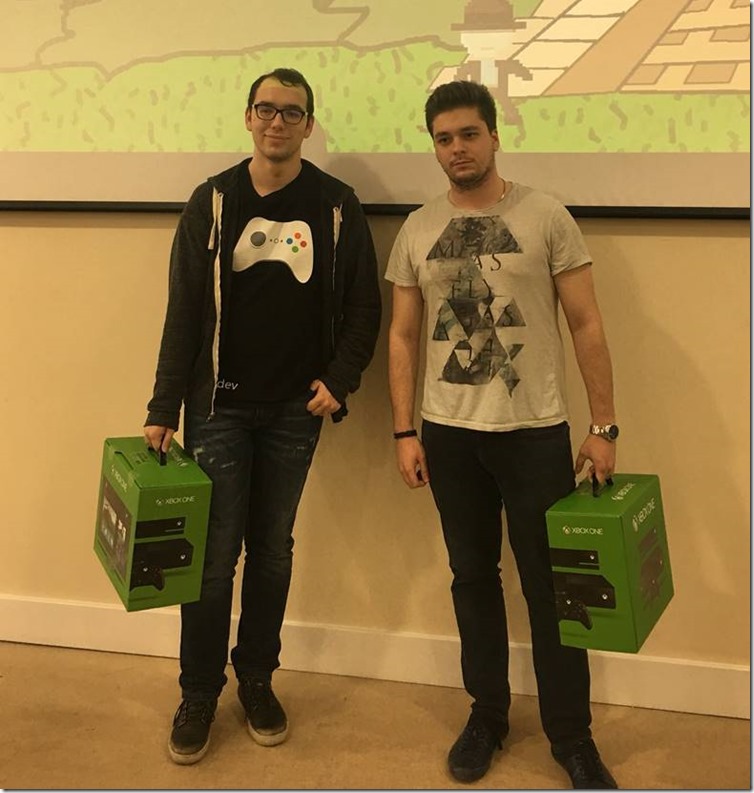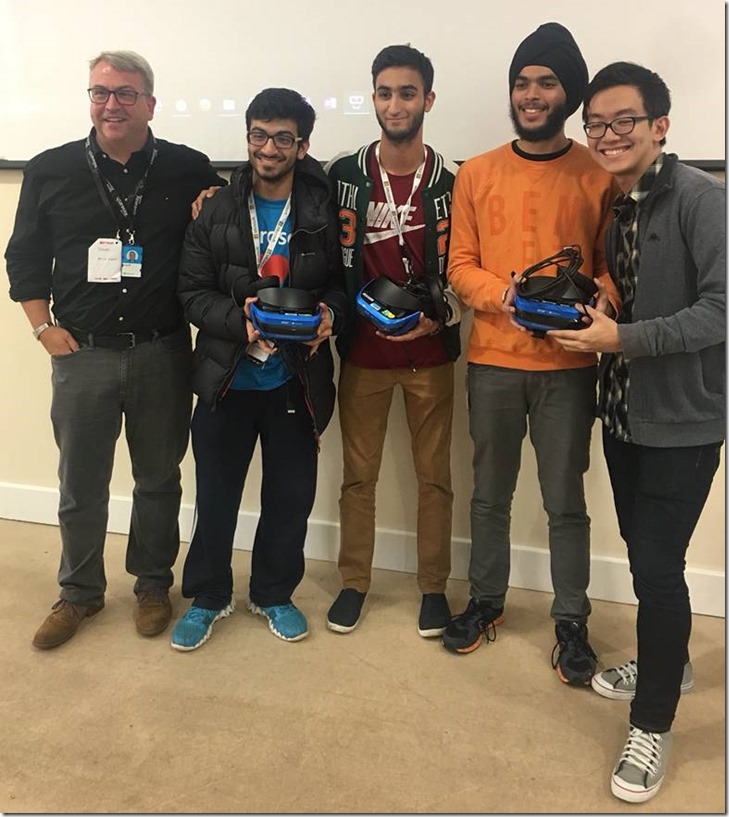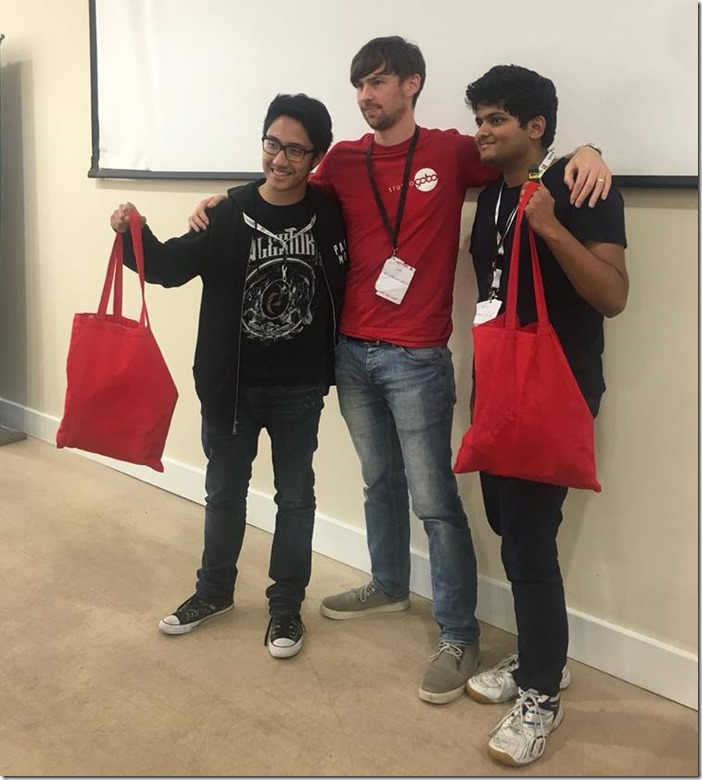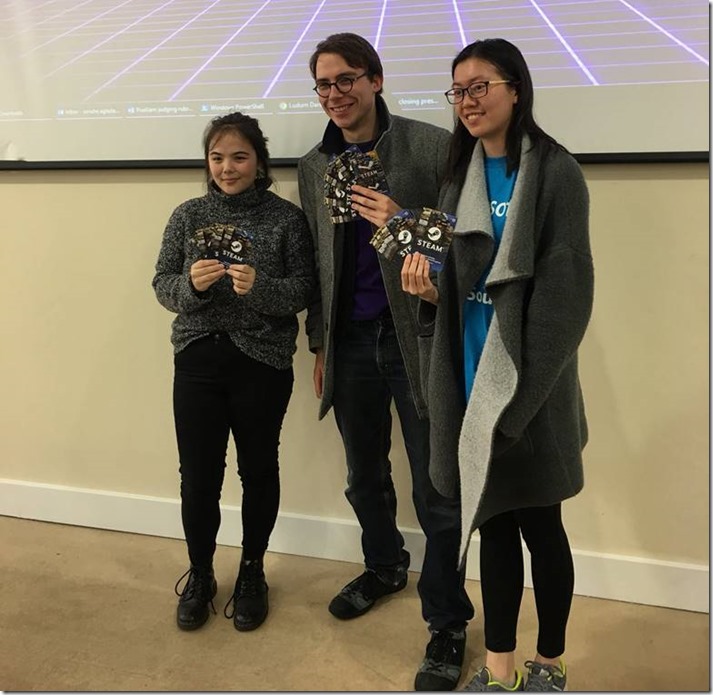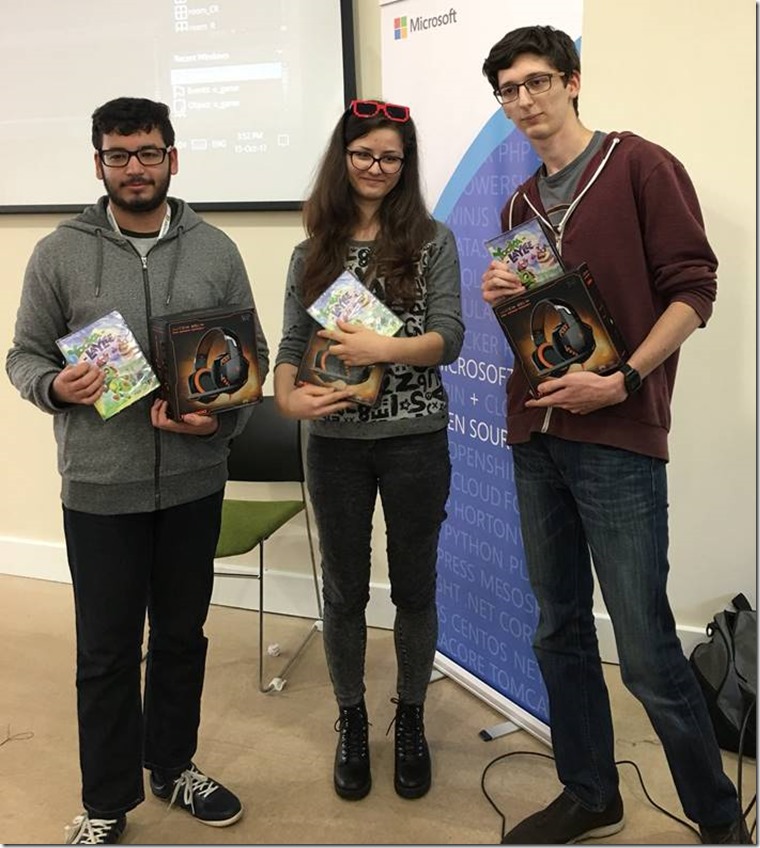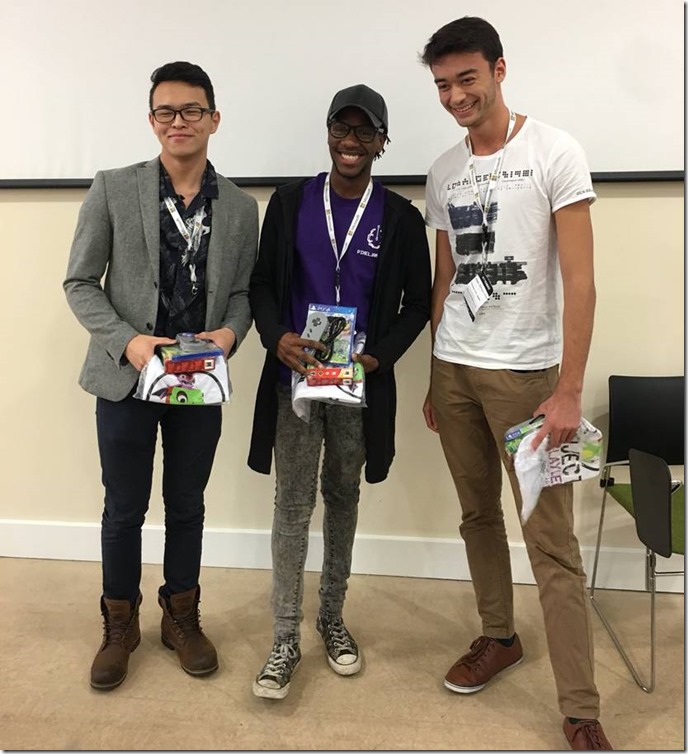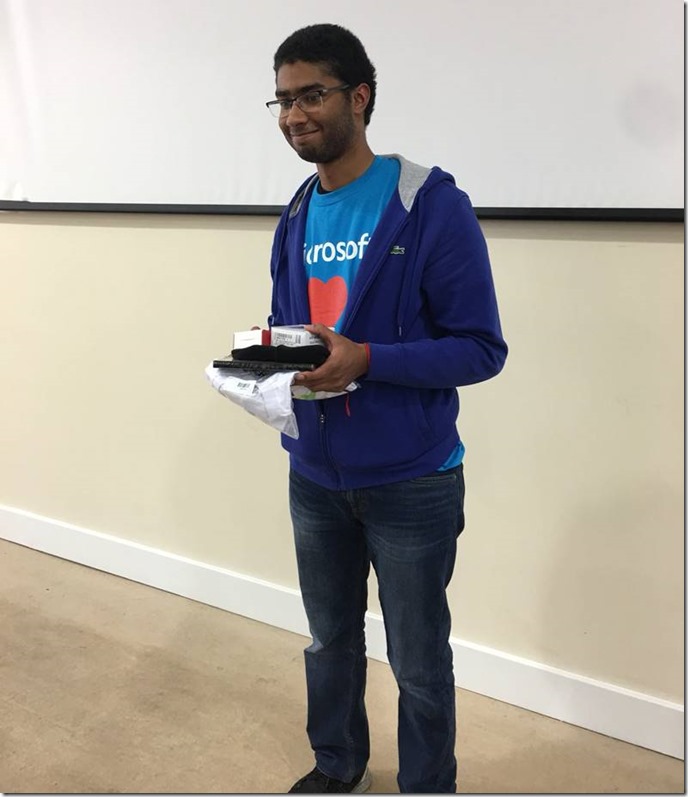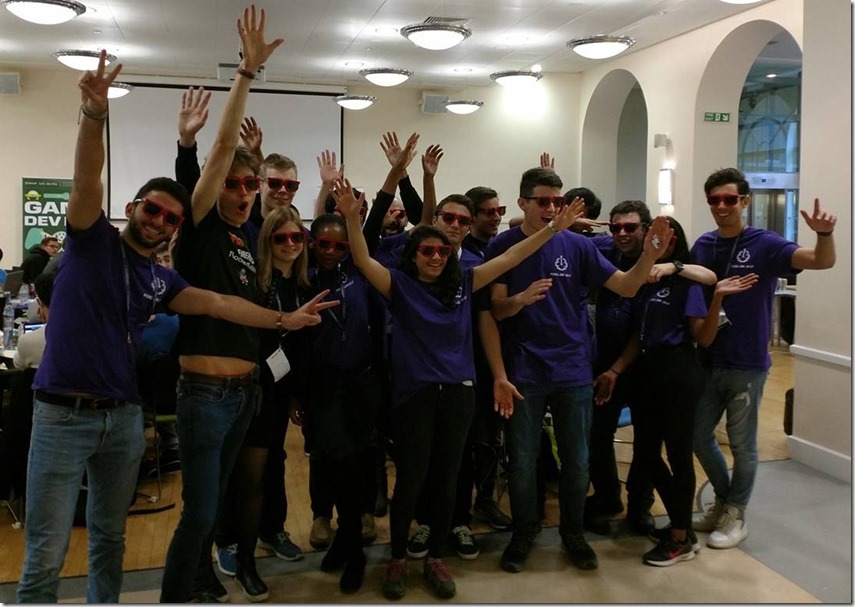Pixel Jam 2017 at University College London
Hello! Our names are Sondre Milch Agledahl and Slaviana Pavlovich. and we are Microsoft Student Partners at University College London
Sondre: Games programmer, avid ROM hacker and karaoke enthusiast. Computer Science student at UCL.
Website: https://sondreagledahl.com/
Slaviana: Lead for Microsoft Student Partners at UCL, studying IT and Management. I also have a wide range of interests including machine learning, public speaking, and politics. Additionally, I enjoy swimming and photography to balance out my studies. I became a Microsoft Student Partner at the end of my first year and I absolutely enjoy being part of such a vibrant community. If you have any questions, feel free to ask!
Linkedin: https://www.linkedin.com/in/slaviana-pavlovich/
Introduction
Many months in the making, PixelJam was a 24-hour game jam run at University College London on the weekend of 14-15th October 2017. For anyone remotely interested in making games, we’re happy to report the weekend was a smashing success. All the same, neither of us had ever organised an event of this scale, and after taking some time to reflect on the experience, we want to share some of the insights about some of our challenges and successes in running it.
And, if you’re interested, try out some of the awesome submissions from the jam participants at https://ucl-pixeljam.devpost.com/submissions!
Pixel_Jam_UCL_SizzleReel_FINAL
Planning and organising
Although UCL had been host to many hackathons over the years, it had never held one targeted at game development - something we were eager to rectify. (It’s no exaggeration that there’s a huge overlap in people who are interested in programming who also love games.)
Both of us were Microsoft Student Partners, and began tentatively voicing our idea for a 24-hour game jam and laying out plans as early as January of the previous academic year. Partly out of wanting to give participants an easy criteria for making game submissions, and partly out of our nostalgic yearning for retro games, we decided to theme our event around pixels and old-school gaming - hence PixelJam.
After some deliberation we settled on an early-autumn date, which allowed PixelJam to be the first hackathon at UCL for the new academic year of 2017 (and would let us attract a host of eager freshers looking to get started in development!).
Response to the event idea from other Microsoft Student Partners was spectacular, and a host of willing volunteers from UCL Technology Society were willing to back us from the start, which was a relief.
In discussing the outside support we received, it’s impossible to avoid mentioning what a huge contributor Microsoft was in making the event happen. Supportive of our idea from the start, Microsoft soon came in as a Gold Sponsor, and reached out to Unity (creators of the popular game engine) to do the same. Having such a powerful backing from the start was a massive burden off our shoulders. (And that’s before even mentioning Microsoft’s contributions and exceptional presence at the time of the event - more on that later!)
In trying to solicit support from other game industry supporters, however, we were given an important lesson in the value of persistence. We wanted to excite attendees as much as possible about the art and industry of games by having real game developers and companies present as sponsors, speakers and mentors. Out of the more than 400 UK-based gaming companies we contacted leading up to the event, however, only a handful even replied. Those who did, though, gave us exactly what we were looking for.
A snapshot of the final event schedule (perhaps its 15th iteration?)
Studio Gobo (makers of the Disney Infinity series) came in as a Silver Sponsor, providing not only financial support, but a host of passionate game developers and designers as mentors at the event. We also received a generous donation from Playtonic (formed by employees of legendary developer Rare, and makers of Yooka-Laylee) consisting of a large stack of games and gaming-related merch to be given as event prizes. Professor of computer graphics and VR Anthony Steed from UCL also volunteered his time to give a talk during the jam, lending an academic flair to the event.
VR Academic Prof. Anthony Steed provides a view of the future of Virtual Reality
Handling the myriad of logistical concerns leading up to the event was an are where persistence similarly paid off. Booking rooms at academic institutions is often a process littered in... bureaucracy. We made a commitment here to never stay out of the relevant gatekeepers’ phones and email inboxes for too long, pushing our agenda forward anyway we could. Having the commitment of Microsoft and Unity’s early backing was great motivation here - we simply had no choice butto secure a suitable venue in time.
And let’s not forget the million and one little things we would’ve never dreamed to think of that all needed handling in order for an event of this size to run smoothly. We’re eternally grateful here for the support from other UCL MSPs and volunteers from UCL TechSoc with past experience running hackathons who could guide us along the way. We can put it simply: Do not attempt to do all this yourself as a first-time organiser - you are 100% guaranteed to miss something somewhere.
An excerpt from the event planning board laid out by Kok Chin Pi from the PixelJam Team (note the emphasis!)
Promotion and marketing
A separate website (https://pixeljam.me/) , Facebook page (Facebook event URL: https://www.facebook.com/events/127408311231361/ ) (Which surprisingly garnered more than 20,000 views), Twitter (https://twitter.com/PixeljamUCL) were created for promoting the event, giving practical information and providing attendees with development resources. We emphasised consistency in our event marketing, and our challenge was to ensure that we spread the same message throughout our channels.
We hoped to attract attendees from different backgrounds to ensure we had a suitable array of different game development skills: Artists, programmers and audio engineers alike. We also aimed to bring in a balanced set of attendees: Beginners, intermediates, and more advanced developers. In retrospect, it turned out, 64% of our applicants said in their application forms that they had never been to a hackathon before. Most attendees being completely unfamiliar with game jams represented a challenge in making sure all our communication and marketing was as clear as possible, but was also an excellent opportunity for us to make their first hackathon a very special experience.
We also wanted to be original in our approach to selecting attendees. Dissatisfied with the drawbacks of first-come-first-serve ticket reservations (most notably the number of reservations who often never show up), we decided on an application system instead. Receiving more than three hundred applications, we had to carefully sift through to the lucky hundred that would get a ticket (a challenging process when so many applicants’ personal statements seemed to reek of gaming enthusiasm).
In accordance with our event branding, we wanted to give attendees some memorable gifts from their experience at the jam. At registration, we gave every attendee a t-shirt, a pair of sunglasses (whose shape is not coincidental) and a PixelJam sticker. The time and energy that went into designing and finding a company to produce these extras paid off in the sheer style of the final product.
Photo by Anze Vodovnik
The attendee merchandise pack, on which they proudly asserted their favourite game (Photo by Adrian Kondrat)
Our marketing efforts were further helped by an unexpected turn of events from the jam’s other gold sponsor, Unity. Because of a timing clash with Unity’s annual employee training programme, the company was unable to send representatives to attend the jam, so we decided on another solution to fulfill their sponsorship agreement instead.
The week before the event (4th October), educational evangelist Liz Mercuri came in from Unity’s Brighton offices to host an interactive Introduction to Game Development with Unity (https://www.facebook.com/events/798011843693231) workshop at UCL. Given the large demographic of applicants who identified as beginners, this worked out excellently to give potential attendees the confidence they needed to make an original submission for PixelJam. Both as a teacher and presenter, Liz excelled in getting people quickly up to speed about the tools and skills needed to craft an enjoyable game.
In hindsight, knowing that all but two PixelJam submissions were made in Unity, we think it’s safe to say this promotion was a success.
Running the game jam
Excitement in the air.
We had meticulously planned everything that was going to happen over the weekend, but thankfully weren’t naïve enough to think we would be ready for everything that needed handling on the day of the event. When doors are locked, food deliveries are late, projectors don’t work, and everything in between, you’d better be ready to think on your feet.
The sight of months of work finally coming together was enough to kick us into high gear, however. The moment attendees started seeping in Saturday morning our obligation was to give them the exciting game development event they signed up for, and our personal concerns and worries all but lifted in favour of trying to give them the best experience possible. Sleep may not be just for the weak, but it’s certainly not for hackathon organisers.
Engrossed in the art of making games (main development area, Saturday afternoon)
We were thrilled by the amount of support we received from the event’s co-operators.
Microsoft nothing short of stole the show (in the best possible sense of the term), lending an air of professionalism and excitement we couldn’t possibly have generated on our own. The Microsoft team of development enthusiasts flown in from around the UK held polished workshops throughout the weekend on a host of game development topics, from Mixed Reality gaming to networking with Microsoft Azure.
Silver sponsor Studio Gobo came in with their own team of enthusiastic developers, designers and artists from the Brighton studio. The presence of professional AAA developers from the industry. All of them assisted attendees and helped with organisation, contributing greatly to the atmosphere of the event.
Microsoft reeled in a set of Mixed Reality headsets, letting attendees try out the newest MR gaming experiences in between hacking sessions. Here, Dr. Karen Stepanyan is trying it out
Microsoft MVP Simon Jackson introduces attendees to Microsoft Mixed Reality game development
Microsoft’s Kristofer Liljeblad discusses the many possibilities for using Azure to enhance online games.
We made sure to leave space for some fun too. We furnished one of our rented rooms into the PixelJam game room, equipped with a Wii U and a PC with a slew of retro emulators - a predictable hit among attendees, volunteers and sponsors alike. Attendees who stuck around till late Saturday evening also got to play a round of slideshow karaoke and enjoy some midnight pizza.
A heated speedrunning match late Saturday evening in the PixelJam game room
Judging
What we thought would be the most relaxed and straightforward process of the game jam for us organisers turned out to be the most nerve-wracking and complicated.
When faced with having to judge the fruits of somebody’s hard work and creative output over a 24-hour period, it’s easy to feel out of your element. It may sound like a cheesy sentiment (and our opinion is probably biased), but we genuinely felt that all submissions for PixelJam were amazing. Having to select one game over another for an award category was downright uncomfortable, but it was part of the process, and we wanted to give attendees the most fair assessment possible.
Like everything else, our judging system was carefully planned, with groups of two judges selecting their nomination for each category and final decisions made in a roundtable discussion.
What we didn’t foresee were the nuances of this process, and the disagreements that ensued in the judging room over which submission was more suitable: How strict should we be in our interpretation of the game jam rules? How important is one criteria compared to another? Is gameplay more important than art style, originality or technical finesse? All matters that had to be decided upon to make sure we would crown the most suitable winners.
In the end, getting to finally reward some of the most dedicated attendees at the award ceremony was a satisfying experience. We had amassed a collection of geeky gaming-related prizes for winners.
To top things off, Microsoft culminated their massive contributions to the jam by handing out a set of Xbox One consoles and Mixed Reality headsets for the well-deserved winners of their award categories.
Winners
1. Best use of Azure
Raiders of the Lost Code by Cosmin Nicolae Bresug, Mihai Cristian Ionescu and Ovidiu-Horatiu Ilie
Xbox One consoles
Judged by Kristofer Liljeblad and Vincent van der Walt.
Submission playable at https://devpost.com/software/raiders-of-the-lost-code
2. Best Mixed Reality game
Jenga VR by Ayushmaan Seth, Fehed Wasti and Sidak Pasricha
Acer Mixed Reality headsets
Judged by Lee Stott and Geoff Hughes.
Submission playable at https://devpost.com/software/jengavr-fsqjw6
3. Studio Gobo Innovation Award
Mobbos by Harjuno Perwironegoro and Amartya Vadlamani
Studio Gobo goodie bag
Judged by the Studio Gobo team.
Submission playable at https://devpost.com/software/mobbos
4.Best artistic style
No Fox Given by Alice Cheng, Henrik Hasell and Serena
Steam gift cards
Judged by David Renton and Slaviana Pavlovich.
Submission is available here https://devpost.com/software/no-fox-given
5.Funniest game
CarrotQuest by Stefanos Lianos, Emma Nedelcu and Tariq Jamal
Noise cancelling PC headset, Unity hats and Yooka-Laylee for PC
Judged by Karen Stepanyan and Suyash Kabra.
Submission is available here https://devpost.com/software/carrotquest
6. Most enjoyable gameplay
Tempo Templar by Romain Chollet, Jeremy Chao and Karabo Sankoloba
Playtonic Retro goodie bag (T-shirt, Yooka-Laylee for PS4, N64 game box, booklet and USB drive) and SNES-styled USB controllers
Judged by Simon Jackson and Jaromir Latal.
Submission is available here https://devpost.com/software/tempoplat
7. Most technically impressive
VR Coloured Nodes by Keerthanen Ravichandran
Raspberry Pi (inside an NES-styled case), Yooka-Laylee for PC and a Playtonic t-shirt
Judged by Sondre Agledahl, David Alm and Philonas Demetriou.
Special thank you
In the end, an event’s success is determined by people behind it, and a number of enthusiastic and hardworking people seemed to pop out of the woodworks to help make PixelJam happen.
This post can only scratch the surface of the work and planning that went into making the jam as incredible as it turned out.
We would like to thank our amazing volunteers: Microsoft Student Partners at UCL, volunteers from UCL, and the many other enthusiastic students who decided to get involved! Our amazing volunteers were Anush Shashidhara, Arjun Khurana, Ashu Savani, Christopher Hammond, David Alm, Gary Burchell, Fasbeer Eskander, Gontle Gorata Ramokapane, Hena Ramdany, Jack Turnell, Jaromir Latal, Khyati Gala, Matt Policane, Maya Afshar, Philonas Demetriou, Priyanka Melwani, Kristine Chong, Sebastian-Valentin Burlacu, Kok Chin Pi , Rohan Kopparapu, Suyash Kabra, Dr. Karen Stepanyan, Thomas West, Tilman Schmidt, Vikash Panjiyar, Vincent Chaglasyan and Walid Behlock.
Additionally, we would like to thank Microsoft Team that helped us to make the event come true, including Geoff Hughes, Emily Byle, Lee Stott, David Renton, Simon Jackson, Kristofer Liljeblad, Anze Vodovnik, Vincent van der Walt. We’re grateful to Studio Gobo and Jake Kimber for his contribution.
Thanks also for the efforts of the UCL School of Management administration (especially Richard Pettinger and Jemma Leahy) who helped us to get in touch with the students interested in IT within the Department.
See you at PixelJam 2.0 in 2018!
The mere thought of it fills you with determination.
![clip_image002[4] clip_image002[4]](https://msdntnarchive.z22.web.core.windows.net/media/2018/01/clip_image0024_thumb1.jpg)
![clip_image004[4] clip_image004[4]](https://msdntnarchive.z22.web.core.windows.net/media/2018/01/clip_image0044_thumb.jpg)
